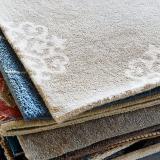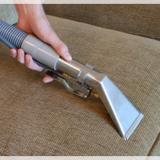Our Blog
Please feel free to post a question or just join the conversation.

Understanding Pre-Existing Conditions in Carpet & Upholstery Cleaning
Pre-existing conditions in carpet and upholstery cleaning—such as sun damage on silk sofas, pet stains, or plant water damage on rugs—are important for homeowners to understand before any professional cleaning begins. In this guide, we’ll explain what pre-existing conditions are, why they matter, and how clear communication between cleaner and homeowner helps protect delicate fabrics and rugs.
One of the most overlooked topics in the carpet and upholstery cleaning industry is pre-existing conditions. Homeowners are often unaware of hidden damage in rugs, carpets, or upholstery until cleaning begins, and many cleaners don’t take the time to explain this before providing service. This can lead to misunderstandings, frustration, and even the belief that the cleaner caused the problem.
At Alec’s Carpet & Upholstery Cleaning, we believe consumer education is just as important as cleaning itself. Here’s what every homeowner should know.
What Are Pre-Existing Conditions?
A pre-existing condition is any form of damage, wear, or hidden problem that already exists before cleaning begins. These conditions often go unnoticed until the cleaning process exposes them.
Example: Plant Damage on Rugs
Imagine a potted plant sitting on your rug. Over time, water seeps out from the pot and dampens the rug fibers underneath. At first, you might only notice a soil mark, but the real danger is what happens beneath the surface.
The constant moisture leads to mold and mildew growth.
Natural fibers like wool, silk, cotton, or jute in the rug backing begin to deteriorate.
The foundation of the rug weakens, meaning fibers can easily loosen or pull out.
When a cleaner comes in, they may see only a stain. But once they start cleaning, the weakened fibers can give way, sometimes leaving a visible hole.
Why Cleaning Can Expose Hidden Damage
During cleaning, suction and agitation are used to remove embedded soil. On rugs or upholstery with hidden damage:
Weakened fibers may pull out
Dyes may bleed or migrate if pet urine or past spills have broken down dye bonds
Fabric may crack or tear if it has been exposed to sunlight, dry rot, or mildew
This doesn’t mean the cleaner caused the damage—it means the cleaning process uncovered what was already there.
Common Pre-Existing Conditions in Carpets, Rugs, and Upholstery
Pet Stains – Urine may appear as a mild yellow spot, but it can weaken dyes. Once cleaned, colors may run together.
Plant Damage – Moisture under pots can cause mold and fiber deterioration in rugs.
Sun Damage – Prolonged sunlight can dry out and weaken upholstery fabric, causing cracking or dry rot.
Mildew or Mold – Long-term exposure to moisture can compromise fibers and create structural weakness.
The Importance of Communication
The key to handling pre-existing conditions is clear communication between homeowner and cleaner:
Homeowners should inform cleaners of past spills, plant leaks, or pet accidents whenever possible.
Cleaners should inspect rugs and upholstery carefully and explain any risks before starting the cleaning process.
By setting expectations upfront, both parties avoid misunderstandings and ensure the best possible results.
Final Thoughts
Pre-existing conditions are an unfortunate reality in carpet, rug, and upholstery cleaning. A good cleaner doesn’t just provide service—they educate clients about potential risks and take steps to minimize further damage.
At Alec’s Carpet & Upholstery Cleaning, we’ve built our reputation on honesty, communication, and decades of expertise. If you’re in Boston or Cape Cod and need professional cleaning with trusted advice, contact us today—we’ll help you restore your home’s furnishings while giving you peace of mind. We are always available to our customers. Call us at 781-871-1415 or e-mail us At Alec@Alecscarpetcleaning.com
note_stackRelated Posts
Blog Categories
-
Carpet & Upholstery Cleaning (15)
-
 Carpet Cleaning (15)
Carpet Cleaning (15)
-
 Spot Cleaning (14)
Spot Cleaning (14)
-
Uncategorized (8)
-
 About Rugs (5)
About Rugs (5)
-
 Upholstery Cleaning (5)
Upholstery Cleaning (5)
-
 About Carpets (3)
About Carpets (3)
-
Outdoor Cushion Cleaning (2)
-
 Fabric Protection (2)
Fabric Protection (2)
-
 Leather Upholstery (2)
Leather Upholstery (2)
-
 Fabrics (1)
Fabrics (1)
-
 Stains on Carpets (1)
Stains on Carpets (1)
-
 Discussions on Carpet & Upholstery (1)
Discussions on Carpet & Upholstery (1)
-
 News (1)
News (1)
